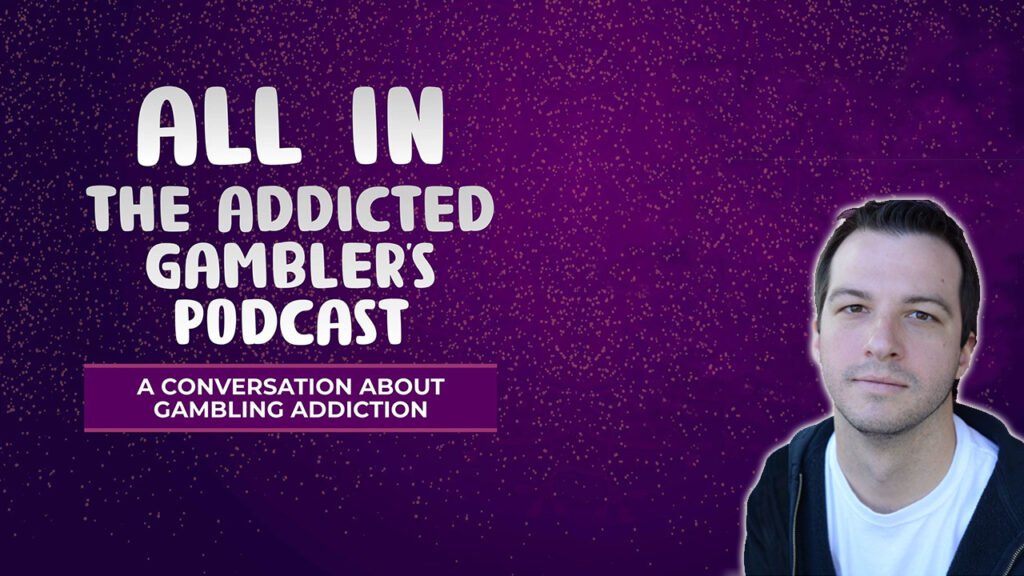Gain insights into the potential societal effects of the gambling industry and the importance of addressing problem gambling. Don’t miss this thought-provoking conversation on the future of gambling in the US. Listen to the episode here, or keep reading.
Super summary:
Gambling lobbyist Steve Brubaker discusses the history of gambling in Illinois, the challenges of passing legislation in various states, and the potential impact of online mobile gaming on society. The podcast covers concerns about gambling advertising in sports, the future of sports betting, and personal experiences from golf. It highlights the importance of honesty and proper resource allocation for problem gambling and the challenges states face in navigating the complex landscape of gambling legislation.
Main takeaways:
- Passing gambling legislation is complex, often facing challenges and conflicts between industry players.
- The rise of online mobile gaming raises concerns about its impact on vulnerable populations and children.
- The future of sports betting is uncertain, with advertising and partnerships becoming more prevalent.
- Addressing problem gambling requires honesty and proper allocation of resources.
- Personal experiences in golf provide valuable life lessons about hard work, kindness, and customer service.
Steve Brubaker is a long-time gambling lobbyist. He had been involved in gambling for 23 years and had represented the Illinois Harness Horsemen’s Association since 1998. Additionally, he had a national fantasy sports client for three years when the industry exploded in 2016.
Illinois and Gambling
Illinois has an extensive history with gambling, ranging from horse racing to the lottery, casinos, online betting on horse racing, and video gaming terminals (VGTs) in bars and restaurants. VGTs is another term for slot machines, and they are available in any business with a liquor license. As of this writing, there are around 40,000 units in 8,000 locations in Illinois. They bring in significant tax revenue for the state, making them a powerful lobby.
Casinos in Illinois pushed for online casinos, but they faced resistance from the VGT lobby due to their tax revenue generation and widespread community presence. Steve is concerned about online mobile gambling, especially for people on the margins who might not have the disposable income or knowledge to gamble responsibly. He is apprehensive about the potential impact on families and children.
The 2018 Supreme Court Decision and the “Gold Rush”
The podcast touched on the 2018 Supreme Court decision that overturned the Professional and Amateur Sports Protection Act (PASPA), leading to a “gold rush” mentality in the gambling industry. Many states rushed to pass legislation enabling sports betting. But they have also faced local turf wars between different industry players. These conflicts make passing legislation in many states difficult, and the battles continue in places like Florida, California, and Missouri.
Steve discussed the concept of grey gambling markets. He defined grey markets as they haven’t prohibited gambling but haven’t enabled it either. He cited fantasy sports as an example, where they operated in a grey market until legislation was passed in some states. Steve also talked about the difference between sports betting and online casinos. Sports betting has been easier to pass due to people’s love for sports, while online casinos are a harder sell.
Gambling Issues in Florida
The conversation shifted to Florida, where there were several gambling-related issues. Steve mentioned a surprise compact between the Seminoles (Native American tribe) and Governor Ron DeSantis that has yet to be approved by the federal government. If approved, the Seminoles could expand their casino offerings and offer sports betting at retail and online locations. Other entities in Florida, such as horse tracks and several operators, might also offer online sports betting. However, Governor DeSantis’s betting legislation piece might not be approved, and the Seminoles might have planned it that way. Steve thought the federal government wouldn’t support online sports betting due to the history of Indian gambling in the US.
Brian and Steve focused on the gambling industry, specifically DraftKings and FanDuel’s involvement with the Florida Education Champions initiative.
Florida Education Champions is a group formed to support a ballot initiative for DraftKings and FanDuel. They funded it with $20 million to collect signatures and votes to pass the industry. The problem was that their advertising and websites used images of children to sell the idea of gambling revenue for education. Steve, who didn’t shy away from expressing his opinions, believed this was a terrible approach. He thought it impacted children’s future perception of gambling.
Misleading Promises and Problem Gambling
They also discussed the issue of misleading promises in the gambling industry. For example, Colorado’s online sports betting initiative claimed to raise $21 million for water resources, but the bill’s language included deductions that they knew would prevent them from reaching that amount. Steve believed that honesty is crucial and that people would support sports betting if presented straightforwardly.
There is also concern about revenue streams for problem gambling. In some cases, the revenue for problem gambling wasn’t there because the money had been spent on promotions instead. Brian and Steve agreed that more attention should be paid to these revenue streams and their allocation.
As for advertising, Steve mentioned that he saw plenty of it, especially from companies like FanDuel, Pointsbet, and DraftKings. He thought people would eventually tune out these ads, like how they dismissed political commercials during election season. However, he admitted that promotions like “bet a dollar, win a hundred” were quite effective in attracting gamblers.
Impact of Gambling on Sports and Families
Brian and Steve had an engaging conversation about the intersection of gambling and sports, specifically the impact on families and children. They discussed their concerns about the widespread marketing of gambling and how it might affect minor-league baseball and other family-oriented events.
Steve shared his worry about sports teams and facilities offering to gamble, as it turned sports into something akin to a seedy casino. He mentioned that people might eventually lose their taste for sports because of the gambling aspect. Steven and Brian also discussed the rising cost of attending a ball game and how families might be affected.
They went on to discuss the problem of gambling and how it was dealt with in the United States. Steve expressed skepticism about the effectiveness of the American Gaming Association’s Problem Gambling Month and urged for more separation between the gaming industry and problem gambling advocacy. He also mentioned that there are people out there working hard to help those with gambling issues, like QuitGamble.com.
Brian and Steve both agreed that it is essential for people with gambling issues to reach out to their state legislators for help and support. They also discussed involving the federal government in setting minimum standards and allocating funds for addiction research.
Future of Sports Betting and its Potential Impact
Brian and Steve had an engaging conversation about the future of sports betting and its potential impact on society. They discussed how sports betting was becoming increasingly popular, drawing comparisons to the situation in the UK and Europe. Brian expressed concerns about whether the US would learn any lessons from Europe’s experiences with gambling, and Steve acknowledged that the problem might have to worsen before people started paying attention.
The conversation turned to the idea of gambling advertising in sports. Brian wondered if LeBron James would ever wear a gambling company logo on his jersey. Steve explained that such advertising was already widespread in European soccer. They both recognized the possibility of it happening in the US too.
Brian and Steve then took a more personal turn, discussing their experiences with golf. Steve shared that his family had a long history in the golf business. His grandfather built a golf course in the ’50s that his brother still runs. He recalled fond memories of growing up in the golf business, learning valuable life lessons about hard work, kindness, and customer service. Despite his background in golf, Steve admitted that he wasn’t exceptionally skilled at the sport.
Conclusion
The conversation ended with Brian expressing appreciation for Steve’s insights and inviting listeners to follow him on Twitter for more information on sports betting and related topics. Their engaging discussion provided valuable insights into the gambling industry, its potential impact on society, and the challenges state face when it comes to passing gambling legislation.

 English
English Español
Español Français
Français Português
Português Svenska
Svenska

